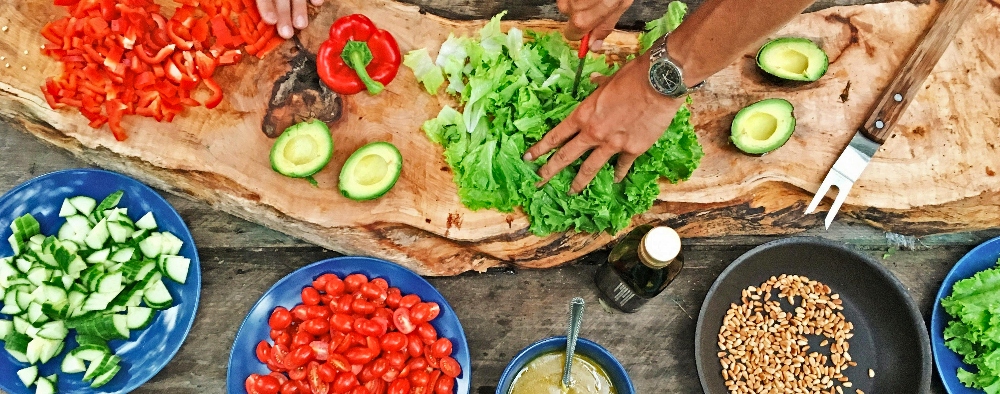by Susan Stamper •
Content Marketing Manager, ChiroHealthUSA •
Everywhere you look these days, the word “protein” is plastered on packaging like it’s the new gold rush. Protein bars, protein shakes, protein cookies, protein chips… even protein-packed crackers are lining the shelves. Don’t get me wrong—protein is important. But when your kitchen starts looking more like a GNC store than a place to cook dinner, you have to wonder: are these “health foods” really helping us, or are they secretly stirring up trouble in our bodies?
The truth is, many of these products are highly processed. Sure, they deliver protein, but they also bring along a parade of additives, sugars, and refined oils that can stoke the flames of chronic inflammation. Think of it like inviting a helpful friend to dinner, only to have them show up with twelve rowdy party crashers who refuse to leave. 🎉🍕
Luckily, there’s a way to keep the peace inside your body: choosing whole foods. What we put on our plates has the power to either calm inflammation or fan the fire. And the closer we stay to nature—fruits, veggies, whole grains, beans, nuts, lean proteins—the more our bodies thank us for it. 🌱✨
Inflammation: The Double Agent
Inflammation itself isn’t evil. In fact, it’s one of the body’s best defense systems. If you trip, scrape your knee, or catch a nasty bug, inflammation shows up like the first responders: swelling, redness, and heat are signs that your body is working hard to heal (Furman et al., 2019).
But here’s the catch—when inflammation sticks around longer than it should, it turns from helpful to harmful. Scientists have found that chronic inflammation is linked to everything from joint pain and digestive issues to heart disease, diabetes, and even Alzheimer’s (Calder, 2020; Furman et al., 2019). Imagine your smoke alarm going off not just during a fire, but all day, every day. That constant blaring wears you down, and over time, it starts damaging the house itself.
And one of the biggest culprits that keeps the “alarm” ringing? The food we eat.
Processed Foods: Throwing Gasoline on the Fire
Let’s talk about processed foods. They’re everywhere—packaged snacks, frozen meals, fast food, sodas, and yes, even many “protein-packed” health products. Researchers have shown that diets high in ultra-processed foods are linked with more inflammation and a higher risk of chronic diseases (Srour et al., 2019; Monteiro et al., 2018).
Why? For starters, a lot of processed foods are loaded with refined sugars and starches that spike your blood sugar. When your blood sugar soars and crashes, your body pumps out inflammatory signals like a car backfiring on bad fuel (Zurbau et al., 2020). Many also contain cheap oils high in omega-6 fatty acids, which, in excess, are like kindling for the body’s inflammatory pathways (Calder, 2015).
Then there’s your gut health. Studies show that diets heavy in ultra-processed foods throw off the balance of your gut bacteria, which in turn stirs up inflammation throughout the body (Tilg et al., 2020). Think of your gut like a neighborhood—processed foods invite in the noisy, messy neighbors, and before long, the whole block is in chaos.
Whole Foods: Nature’s Firefighters
Now, let’s look at whole foods. Fruits, vegetables, whole grains, nuts, beans, and lean proteins don’t just fill your stomach—they actively work to cool inflammation. Scientists have found that whole foods are packed with antioxidants, which fight oxidative stress, that “rusting” effect that happens inside your body when it’s under constant inflammatory pressure (Aune et al., 2019).
Fiber, found in abundance in whole foods, feeds the good bacteria in your gut, helping them produce short-chain fatty acids that lower inflammation and improve immunity (Koh et al., 2016). It’s like giving the “good guys” in your gut neighborhood the tools they need to keep things running smoothly.
And let’s not forget healthy fats. Omega-3s from fish, walnuts, or chia seeds act like fire extinguishers against inflammatory processes (Minihane et al., 2015). Ever notice how Mediterranean diets—loaded with olive oil, fish, veggies, and nuts—are constantly hailed as heart-healthy? That’s because they’ve been shown to reduce inflammation and protect against chronic disease (Schwingshackl & Hoffmann, 2015).
The science lines up beautifully with common sense: when we eat closer to nature, our bodies run better. It’s the difference between putting premium fuel in your car versus filling the tank with soda. One keeps you humming along; the other… well, you’re not making it far.
Practical Tips to Shift Your Plate
Making the switch doesn’t mean you have to go cold turkey on all processed foods. (Relax, you can still enjoy pizza night. 🍕) But here are some realistic, everyday swaps to start nudging your diet toward healing:
- Swap chips for roasted chickpeas or almonds. Crunchy, salty, but with nutrients your body actually wants.
- Replace soda with sparkling water and a squeeze of lemon. You’ll get the fizz without the sugar crash.
- Trade candy for fresh berries or a square of dark chocolate. Sweet without the inflammatory baggage.
- Shop the edges of the grocery store. That’s where the produce, dairy, and fresh proteins usually hang out.
- Aim for balance, not perfection. Try an 80/20 approach—80% whole foods, 20% treats. Because life’s too short to swear off birthday cake. 🎂
The Big Picture
Inflammation isn’t the villain. It’s your body’s way of protecting you. But when processed foods dominate your diet, it’s like keeping the emergency alarm stuck in the “on” position—eventually, the noise takes a toll. Whole foods, on the other hand, are like calm, steady friends that help restore balance.
Every bite is either fueling inflammation or fighting it. And while nobody’s perfect, leaning toward whole foods more often than not can be one of the most powerful steps you take for your health. So the next time you’re eyeing that neon-wrapped protein cookie, ask yourself: is this fueling the fire or helping to put it out? Your body already knows the answer. 🌿💚
Sources
- Aune, D., Giovannucci, E., Boffetta, P., et al. (2019). Fruit and vegetable intake and the risk of cardiovascular disease, total cancer and all-cause mortality. International Journal of Epidemiology, 48(3), 1029–1056.
- Calder, P. C. (2015). Functional roles of fatty acids and their effects on human health. Journal of Parenteral and Enteral Nutrition, 39(1_suppl), 18S–32S.
- Calder, P. C. (2020). Nutrition, immunity and inflammation. Nutrition Reviews, 78(1), 19–21.
- Furman, D., Campisi, J., Verdin, E., et al. (2019). Chronic inflammation in the etiology of disease. Nature Medicine, 25(12), 1822–1832.
- Koh, A., De Vadder, F., Kovatcheva-Datchary, P., & Bäckhed, F. (2016). From dietary fiber to host physiology. Cell, 165(6), 1332–1345.
- Minihane, A. M., Vinoy, S., Russell, W. R., et al. (2015). Low-grade inflammation, diet composition and health. British Journal of Nutrition, 114(7), 999–1012.
- Monteiro, C. A., Moubarac, J. C., Cannon, G., et al. (2018). Ultra-processed foods: What they are and how to identify them. Public Health Nutrition, 21(1), 4–17.
- Schwingshackl, L., & Hoffmann, G. (2015). Adherence to Mediterranean diet and risk of cancer. Cancer Medicine, 4(12), 1933–1947.
- Srour, B., Fezeu, L. K., Kesse-Guyot, E., et al. (2019). Ultra-processed food intake and risk of cardiovascular disease. BMJ, 365, l2289.
- Tilg, H., Zmora, N., Adolph, T. E., & Elinav, E. (2020). The intestinal microbiota fuelling metabolic inflammation. Nature Reviews Immunology, 20(1), 40–54.
- Zurbau, A., Noronha, J. C., Khan, T. A., et al. (2020). The effect of carbohydrates on inflammation. Nutrition Reviews, 78(1), 19–21.








